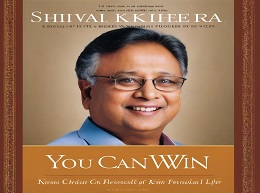Essentialism: The Disciplined Pursuit of Less

"Essentialism: The Disciplined Pursuit of Less" is a book written by Greg McKeown. Published in 2014, the book advocates for the philosophy of essentialism, which involves focusing on what truly matters and eliminating the non-essential. Here's a summary:
Key Themes:
-
The Pursuit of Less:
- Essentialism is centered around the idea of deliberately choosing fewer things but doing them better. McKeown encourages readers to focus on the essential and eliminate the non-essential.
-
The Myth of Having It All:
- McKeown challenges the myth that one can have it all, emphasizing that spreading oneself too thin can lead to mediocre results in many areas instead of excellence in a few.
-
Trade-offs and Saying No:
- The book stresses the importance of making conscious trade-offs and learning to say "no" to non-essential activities, commitments, and opportunities.
-
Priority and Focus:
- Essentialism advocates for identifying the highest-priority tasks and projects and giving them focused attention, rather than trying to do everything at once.
Key Concepts:
-
The Essential Intent:
- McKeown introduces the concept of the essential intent, which involves defining the one thing that, if achieved, will make everything else easier or unnecessary.
-
The Three Core Ideas:
- Essentialism is built on three core ideas: Explore many options before committing to one, eliminate the non-essential to make room for the essential, and execute at the highest level.
-
The Paradox of Success:
- McKeown explores the paradox of success, where having more options and opportunities can lead to diffused efforts and ultimately hinder success.
-
The Buffet of Life:
- Using the metaphor of a buffet, the book encourages readers to resist the temptation to "have it all" and instead choose selectively from life's options.
Impact:
-
Business and Leadership Applications:
- "Essentialism" has gained popularity in business and leadership circles, with leaders adopting its principles to improve decision-making and focus.
-
Productivity and Time Management:
- The book has influenced discussions on productivity and time management, advocating for a more deliberate and selective approach to tasks and commitments.
-
Individual and Organizational Change:
- Essentialism has been embraced as a philosophy for personal and organizational change, providing a framework for making strategic choices and achieving meaningful goals.
-
Integration into Self-Help Literature:
- The book is often recommended in self-help literature for individuals seeking guidance on simplifying their lives and achieving more with less.
Practical Application:
-
Priority Setting:
- McKeown provides practical tools for identifying and setting priorities, helping readers distinguish between the essential and the non-essential.
-
Saying No:
- Essentialism encourages the skill of saying "no" to commitments and opportunities that do not align with one's essential goals.
-
Continuous Evaluation:
- The book advocates for ongoing evaluation of priorities and the elimination of activities that no longer contribute to the essential.
"Essentialism: The Disciplined Pursuit of Less" is a guide for individuals and organizations seeking a more focused and intentional approach to life and work. By embracing the principles of essentialism, readers are encouraged to make strategic choices, eliminate distractions, and channel their efforts toward what truly matters.













